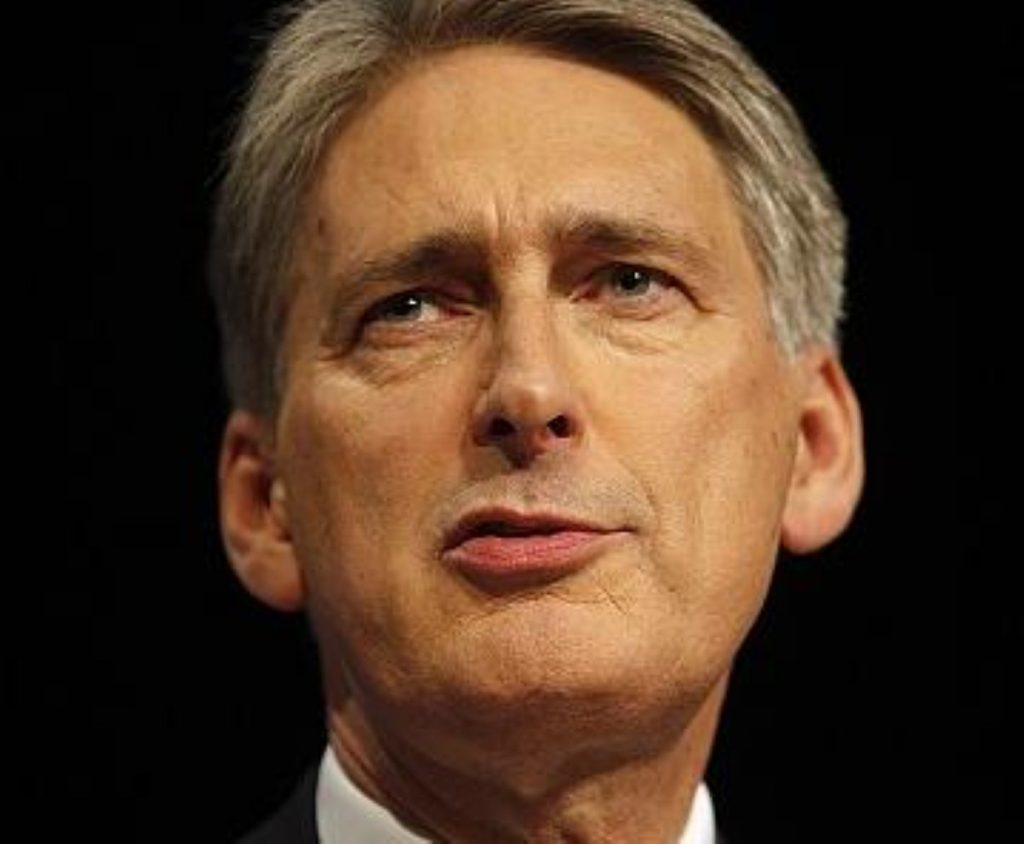Hammond’s call for treason against Isis is an unhelpful temper tantrum
Until 1814, the punishment for treason was very severe. Those found guilty were dragged to the place of execution by a horse. They were hung, but without a drop to break the neck, so that they stayed alive for what followed. Executioners then brought them to the ground, stripped them, and cut off their genitals. The viscera was pulled out and burned before their eyes. Then the other organs were removed. The body was then decapitated and cut into quarters, all four of which were at the disposal of the sovereign. Usually they were publically displayed. Public relations, of the most deranged sort, is always at the heart of the debate over treason.
In 1814, the law was softened so that offenders were merely hung to death, with the disembowelling, beheading and quartering taking place posthumously.
Treason has always carried with it the most colourful and barbaric sentences. The last person to be executed in Britain for treason was William Joyce, also known as Lord Haw Haw, who was accused of participating in German propaganda during the war. He was hung in Wandsworth prison.
It wasn't until 1998, 34 years after the last execution, that the death penalty for treason was scrapped.



Treason has a remarkable history. Even in Victorian times, it warranted medieval punishments. Even in modern Britain, it warranted capital punishment. It is simply one of the most emotive and hysterical bits of statute in the UK. There is certainly more public debate about it than there are charges.
So it is little surprise that Tory MPs are warming to the idea of using it against those Brits going to fight in Syria.
Philip Hollobone, a standard-issue swivel-eyed right-wing Tory backbencher, asked Phillip Hammond in the Commons:
"Will the foreign secretary ensure that British jihadists who return from Iraq and Syria are prosecuted for the offence of treason because her actions are treachery against Her Majesty, because aiding and abetting enemies of Her Majesty is one of the greatest offences a British citizen can commit?"
You can see the absence of legal or political argument. It's political equivalent of the yelps of a child.
Hammond replied:
"There are a number of offences under English law with which returning foreign fighters can be charged.
"We've seen situations of people declaring that they have sworn personal allegiance to the so-called Islamic State and that does raise questions about their loyalty and allegiance to this country and raises, as my honourable friend rightly says, questions about whether offences of treason could have been committed."
It was an absurd answer. Hammond himself admits there is legislation banning membership of proscribed terrorist organisations. There are plenty of laws available, including the Terrorism Act 2000, the Anti-Terrorism, Crime and Security Act 2001, the Prevention of Terrorism Act 2005, or the Terrorism Act 2006.

But when treason is mentioned, it is very rarely about legal necessity. It is usually about public hysteria. That's why the punishment for treason was always as draconian as times would allow, sometimes even more so. It was never meant to effectively deal with a crime. It was meant to pacify public outrage and bolster the coercive powers of the state.
The final execution, of Lord Haw Haw, was a case in point. Public anger was at fever pitch. Parliament quickly passed the Treason Act 1945. Without it, the trial for treason would have involved a lengthy medieval procedure. The only evidence he still had a valid British passport when broadcasting from Germany came from a single police inspector, who claimed to recognise his voice from when he'd questioned him before the war.
By 1848, when Chartists and Irish radicals were threatening the British state, treason law was again given an airing, with laws outlawing the "writing or printing" of material advocating the deposition of the Queen.
Even now, treason is only mentioned during times of high public anxiety. It was proposed when Islam4UK were proposing a demonstration against British troops returning from Afghanistan in 2010.
In the US, treason law emerged again in the frenzied years after September 11th. In 2006, Adam Gadahn became the first American to be charged with treason since the Second World War, after he was accused of appearing in al-Qaida propaganda.
The mention of treason is equivalent to an emotional outburst, not a serious legal approach to national security issues. There were no prosecutions for treason, for instance, during the republican terror campaign in Northern Ireland. Treason is for people having temper tantrums, not for those seriously engaged in preventing terrorism.
If we really want to start enforcing it, we may find ourselves in unusual and unwelcome positions. It is treason, for instance, to have sex with the wife of the heir to the throne. Would anyone really want to pursue that law, given what we suspect of the goings-on in royal households?
Hammond should have laughed off the mention of treason and put it to one side. By tipping his hat to Hollobone's inane question he did what excitable minds have done for centuries – allowing emotions to get the better of their judgement.


